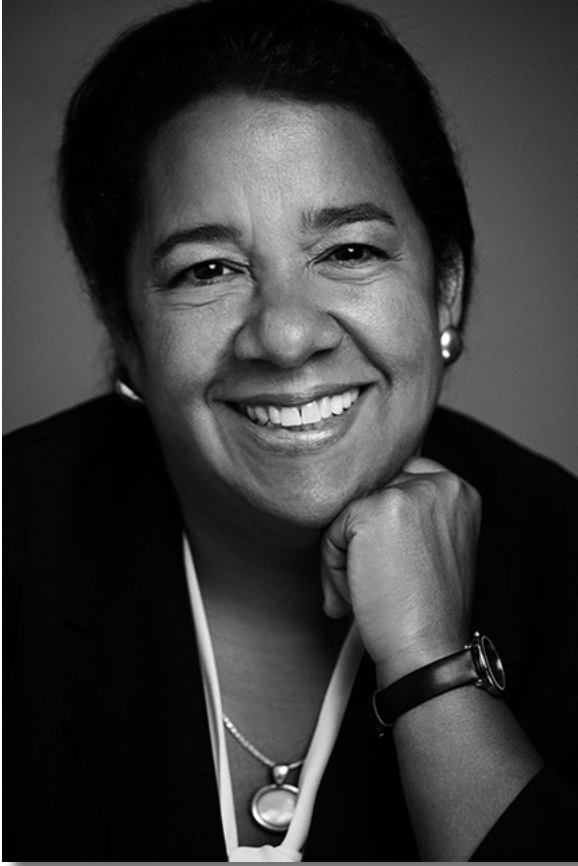“Dear Miss Metropolitan”: An Interview with Carolyn Ferrell
Fiction faculty member Carolyn Ferrell was recently interviewed for Scoundrel Time. Read an excerpt of this conversation below:
Dear Miss Metropolitan: An Interview with Carolyn Ferrell
The girls’ experience in captivity has parallels to the real-life abductions and years of torture experienced by Amanda Berry, Michelle Knight, and Gina DeJesus in the so-called “Cleveland House of Horrors.” But this story also contains echoes of so many other stories, fictional and factual, of “victim-girls.” What do you think is the root of our cultural obsession with missing girls, taken girls, victim-girls? Why does this particular narrative remain so powerful?
In Edward P. Jones’s story, “Adam Robinson acquires Grandparents and a Little Sister,” a Black mother, impatient with the tepid response of the white police, turns to a group of ex-convicts from a local halfway house to help find her missing son. The convicts do indeed find the boy—he’d been kidnapped and held captive in the woods, and clearly would not have, as the police condescendingly told his mother, “found his own way back home.” The story’s protagonist goes on to make the following observation: “That was Washington now…that was the world now—people forced to get criminals to do police work.”
I was inspired by this scene when I first began Dear Miss Metropolitan. I was struck by the obvious: why weren’t people doing what they were supposed to be doing? Why was this missing Black boy not a priority for those public servants meant to protect him? Let me start out by saying that NO GIRL (or boy or human being) deserves the fate of abduction, abuse, or captivity. My heart hurts when I think about what these crimes do to not only the victim but their families and communities. But what is also painful is the lack of mainstream attention when it comes to missing people of color. There is a “missing white girl narrative” in popular culture that can exist at the expense of Black and Brown children. The missing white girl is young, innocent, and undeserving of any type of evil. She is the one society wants to see brought home safely. Rarely is the missing Black or Brown girl—often described as a runaway or delinquent—viewed through the same lens or with the same urgency. The Women’s Media Center observes that African American girls make up over 40% of the missing children in America, and yet are absent from any collective outrage.
I once watched a true crime program about a young Black sex worker who’d been kidnapped and tortured for months by a man who forced her to become his “wife” (she considered herself luckier than the other women chained in his basement). This Black woman managed to free herself and, finding a pair of white police detectives at a gas station, begged them for help. They laughed, thinking her a strung-out addict. It took more than ten minutes for this Black woman to make them see she was indeed a victim of a kidnapping. Watching her try to convince these white men of her authenticity as a Black victim—as a viable human being deserving of care and safety—broke my heart. The program never followed up on details of race and class, but this Black woman’s lack of being seen and heard stayed with me. It informed Dear Miss Metropolitan as much as any other story of kidnapping and abuse.
I wasn’t interested in writing about actual events in my novel, but I was certainly moved by them. Like many others, I was caught up in the news story of the Ariel Castro kidnappings. How could these girls go missing for so long, I wondered? How can girls, women simply be overlooked, misplaced, forgotten? And for weeks, months, years? This erasure commanded my attention. When I began Dear Miss Metropolitan, I wasn’t thinking true crime or statistics; but I was thinking of the ways race, class, gender and sexuality figure in these stories of abduction and abuse. I considered what communities do (or neglect to do) to recover their missing girls. I thought about the life that is begun after liberation, the emotional aftermath of all involved, and the debt owed to those who are recovered. For Dear Miss Metropolitan, I imagined three disappeared Black and Brown girls and I didn’t want them relegated to some cold case file, some faded missing posters, some tenderly held photo albums.
Read the rest of this interview here: https://scoundreltime.com/dear-miss-metropolitan-an-interview-with-carolyn-ferrell/




